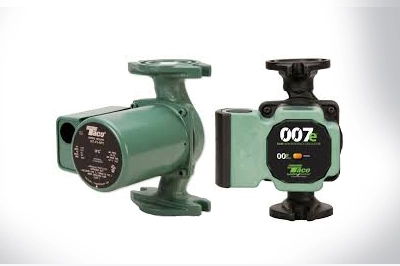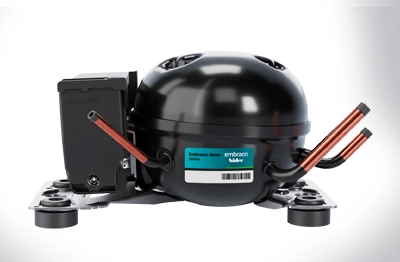We often publish articles on leadership, so I thought during this post-pandemic phase, that it might be important to bring it back to basics and remind our readers of the qualities that make a good leader. You can pass all the tests, create the most intricate strategies, and employ the best technology, but without the qualities in place to be a good leader, to lead by example, you may as well be a Lamborghini without an engine. If you hope to lead your company or companies to success, you must model the very qualities you expect in others. One of our most formidable leaders, Mike Schwartz, CEO of Daikin Applied Americas Inc., and whom we interviewed back in 2018 for 20 Questions, answered it best when he was asked, “What makes a good leader?” Schwartz answered:
…it’s never a simple one-dimensional answer. Number one is having great character and a strong moral compass. People need to know who you are and what you stand for. Another part is fundamental: lead by example. One of my favorite parts of leadership is coaching.
1. Lead by Example
Let’s start by tailgating what Mike Schwartz said. If you wish to inspire others, you must lead by example. If you lead with integrity, people will want to model that quality. If you are open to coaching and elevating the people you lead, they will feel empowered to be better. Many successful companies, Daikin being one of them, have this as part of their leadership model. Empower employees to be better. Empathize. Treat others with respect. If you look at Marriott, HP, JetBlue, Daikin, and other billion-dollar companies, they have built this mantra into the company creed. But it’s not merely a philosophy. It starts at the top with the leaders who model the qualities they wish to inspire, by example. Be the leader you wish you had. Even if you are just starting out with a small brick and mortar shop, commit to being that kind of leader. Be the boss you wish you had. Your leadership commitment to lead by example, will take you farther than any “do it because I said,” motto ever could.
2. Decisiveness
Lee Iacocca famously said, “The one word that makes a good manager – decisiveness.” Notably, he referenced decisiveness, not decision making. The trait that separates extraordinary leaders from ordinary managers, is the ability to be decisive. The willingness to make a tough decision or any decision, and stand by it, is one of the most important traits of an effective leader. It is also true, that the more prominent the leader, the more critics there will be. True leaders make the tough decisions and understand that hesitation leads to almost certain failure if you wish to be a true visionary. The wrong decision can be transformed into the best one. Indecision or vacillation can never lead to success. It only signals a lack of confidence. Competitors will smell the fear. Be decisive. Your next decision is the best and only decision at that moment.
3. Listen
When you set out to create the picture of what makes good, effective leaders, you will see “the ability to listen” repeatedly – it’s on every list. Any leader can be an egomaniac and lead with tyranny. But as history has shown, that sort of leader will always fall on the sword. A true leader has a vision. He or she looks to others for feedback both to learn and improve, but also to inspire, create, and support that vision. If you aren’t a great listener but you aspire to be a great leader, start by saying less and listening more. The next time a coworker or an employee has a concern or an idea, commit to saying, “I’d like to hear it.” Then, actively listen, without judgment or the need to answer. You may find there in the feedback, that there is a need to pivot how you manage your business – not the easiest feedback – or if you are lucky, you may find inspiration to support your own long-term vision. Commit to active listening without judgment and hopefully, a sprinkle of empathy. Eventually people will begin to trust you and will want to support you as the effective leader you were always meant to be. Listening leads to active, effective communication. People who feel heard will trust you. Trust engenders fellowship and loyalty – all qualities needed to inspire a following of loyal supporters.
4. Vision
No leader was born without vision. Does that mean that you know exactly how everything will go on your journey? No, it does not. But without vision, you have no clarity. The vision can be personal – I want to be a leader who exhibits x, y, z qualities. Or the vision can be aspirational and goal oriented – I want to create a chain of HVACR companies that serve the entire county. Then I want to consult to inspire others to do the same or I want to coach employees or talk to kids. You may not achieve the exact thing you desire. It’s also possible though that you may get more than you ever imagined. But great leadership, one that leads to success, starts with a vision.
5. Be Flexible & Proactive
No leader made it to the top by simply being rigid and inflexible. The higher you climb, the more obstacles you will face. Journeys are never a straight line. If they were, then everyone would take the same road. So, this fifth quality, is a “two-parter” because it seems one trait, cannot survive without the other. Be flexible and be proactive. A commitment to proactive solution-oriented action, leads to innovation, and out of the box thinking. Of course, this is all easy when business is going well. But during times of difficulty, assuredly, it will sustain your company and may even help you to do better. A good example of this was how fast-thinking HVACR CEOs, pivoted and adapted during the recent pandemic. Supply shortages, a panicked economy, and brick and mortar shutdowns flattened many of our best small businesses. However, according to a recent article in Forbes, titled Proactive Is the New Reactive: What Today’s Labor Shortage Means For The HVAC Supply Chain, by Karl Pomeroy, HVACR owners who may have been suffering, are now leaning on forethought, planning, and the ability to be proactive. Incidentally, Karl Pomeroy is Karl Pomeroy, GM and President at Motili, with more than 30 years of experience in HVACR sales and management. In this latest interview, his leadership advice speaks to being proactive and being able to pivot. He says:
The best way to mitigate the pitfalls in this new way of doing business is to be prepared. It’s one of the golden rules in HVACR; evaluate systems and plan for repairs and replacement. It’s more important than ever.
Make the decision now to pivot when necessary. After that, decide how you will be prepared with proactive solution-oriented action. Have a plan. As part of that plan and preparedness include the unknown factors which means a real commitment to flexibility and proactivity.
6. Integrity
In my experience, leaders I’ve worked with that had integrity had several common traits. First, they insisted on timeliness this included everything from meetings, and internal follow up reports to proposals to customers. Second, they put quality over quantity. And they put the company reputation over profit. A leader with integrity also values honesty, being good for your word, and by default, being trustworthy. Additionally, integrity involves taking personal ownership. Even the most powerful leaders make mistakes. The ability to own these errors, not blame others, will engender more loyalty and trust from your support team. And finally, as a leader with integrity, you treat your team as you would expect them to treat colleagues. In that way, you model respect from the top of the hierarchal model. As an effective leader, you must understand that your behavior, as the head of an organization, is no longer only a reflection on your personal reputation. You represent an entire entity. Therefore, your personal and professional integrity affects everyone in your company. And more customers are looking to do business with companies that display a show of integrity by a company as a collective. It is the reason many heating and cooling companies, now opt to reveal their commitment to sustainable energy and caring for the environment. With the ubiquity of social causes and social media, customers now care about what matters to the leaders they support. Integrity is the new buzzword in a more and more common, democratic, empowered management style. But it’s not cliché. Take your personal and professional integrity seriously.
7. Emotional Intelligence
There is a difference between book smarts and emotional intelligence. In fact, many leaders will tell you that the trait which separates their best employees and managers from the mediocre ones, is often not the ivy league degree, but rather the presence of emotional intelligence. I could list a slew of definitions of emotional intelligence (EI), but there is a consensus among most of us, I think, about what makes an emotionally intelligent leader. Some observers may not be able to define it clearly, but they can pinpoint the qualities. They point to assets like “steady” or others might perceive an emotionally intelligent individual as a “strong” leader in the face of hardship. But while we assign these adjectives, ones that point to fearlessness, that generalization may be a slight misnomer. An emotionally intelligent leader, in fact, may indeed be dealing with an inordinate amount of personal fear. However, it’s the ability to assess the situation without reaction, understand the full picture, and act to solve it accordingly, while staying emotionally balanced. In short, it’s emotional regulation. John Galbraith1 once said:
All of the great leaders have had one characteristic in common: it was the willingness to confront unequivocally the major anxiety of their people in their time. This, and not much else, is the essence of leadership.
EI isn’t about book smarts. It is about understanding the big picture and taking the appropriate, balanced, and intelligent, next action. It’s about listening and taking in feedback without personalization. It’s about being able to be proactive in the face of hardship, without expressing tyranny or rage. If most of the previously listed qualities of an effective leader make up the body or the whole, then EI is the backbone of all of them, at least when it comes to what makes a good leader.
Heather Langone is Managing Editor at HVACR Business Magazine.





